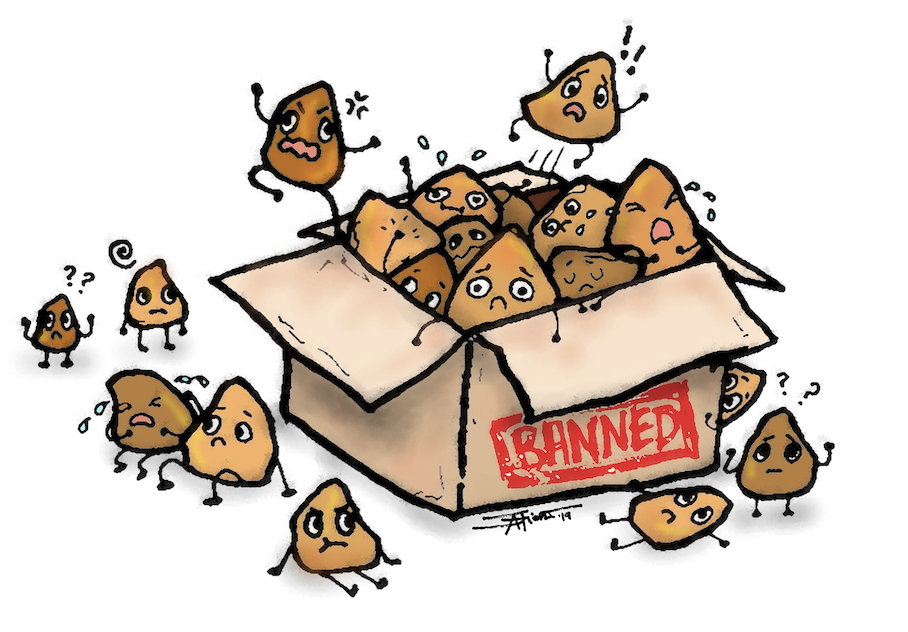Samosa sales provide cheap on-campus food for McGill students every year. While the Students’ Society of McGill University (SSMU) has no record of receiving a fine from Montreal Inspection des Aliments for samosa sales before, inspectors shut down and fined a sale in the basement of Burnside Hall on Oct. 22. The inspectors were evaluating the nearby Soupe Café when they noticed the club McGill Students for China Care hosting a samosa sale fundraiser. The club executives requested anonymity in their comments to The McGill Tribune.
“The first thing I remember was asking the two men […] how many samosas they wanted,” a China Care executive said. “Then a badge came out, he waved his hand over the box and said ‘arrêt’. Before we even had the chance to react, they began to demand we cease our samosa sale, stating that the service was not up to regulations […] He threatened us with a fine of $300. I asked him where we could find these rules, because if we had known, we would have followed them. He didn’t have a straight answer, saying that we should look it up.”
The China Care executives described their shock after their interaction with the inspectors and questioned whether they were racially profiled.
“I wondered if they would have been more lenient and accepted our changes were we white and francophone as they were,” a China Care executive said. “But instead, we were three young women of East-Asian descent who didn’t speak French. As if looking down on us for not knowing, he barely bothered to explain who he was or what his purpose [was in] confronting us.”
Another executive member described the cause of their club and the impact that the inspectors left on them.
“I understand that this was a professional doing his job, but he really made this tiny student club raising money for orphans feel like criminals,” the China Care executive said. “I was texting someone and I turn around and this adult man is telling us to shut down; it was all very sudden. He flashed […] his ID, and it’s not like I knew what to look for on the badge. Having seamlessly done a dozen food sales for various clubs, this really caught me off guard and I feel like [the inspectors] didn’t respect that. Restaurants expect this, but we aren’t a restaurant.”
SSMU will be covering the fine, as they are the parent organization in charge of McGill Students for China Care. According to SSMU Vice-President (VP) Finance Sam Haward, the amount of the fine, which will be administered in about a month, will range between $2,250 and $54,000. Haward explained that the samosa sale violated safety regulations regarding hygiene and internal temperature.
“The fact that anyone could put their hands into the cardboard box, and [that samosas] were served in a newspaper was unhygienic,” Haward said. “The samosas were well below 60 degrees, which is the law [for hot-food serving].”
SSMU is working to advertise the newly enforced standards to student clubs hosting food-sale fundraisers in the future.
“We have provided signage for groups that are having events this week,” Haward said. “[We reached out to] every club that we know of that is having a food sale this week [regarding] what we can do to help them have their sale.”
To avoid another fine, SSMU has decided to suspend samosa sales until new procedures are implemented to address heating and serving requirements.
“For the time being, bake sales will be okay, provided that the groups provide the proper signage for allergies [and use] gloves and napkins,” Haward said. “We will be releasing a guide next week [that] outlines the requirements for preparing and serving food [while at] events or [when] tabling.”
SSMU VP Student Life Billy Kawasaki noted that the updated standards and policies will be enforced on a regular basis.
“We will include [serving standards] in the club workshops going forward [and] talk about how clubs should conduct themselves while doing food sales,” Kawasaki said. “For the time being, we do not have procedures yet, so that is the first part we are addressing.”








